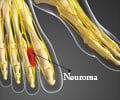
Whether a diet rich in fish can help mitigate bone loss for the terrestrial-bound has not been determined, but Smith finds it highly likely.
"When we try to apply what we learn in spaceflight on the ground, it's almost like looking at time-lapse photography. It's so accelerated. In a six-month station crewmember, you can see what would take six years on the ground," Discovery News quoted Smith as saying.
"If we can better understand the changes in bone in spaceflight and how to counteract with something as simple as diet, the implications for the rest of us here on Earth are pretty remarkable," he added.
Smith and colleagues credit the omega-3 fatty acids present in some fish with helping to stem bone loss.
A second study on subjects confined to bed rest-intended to simulate the muscle atrophy and other conditions astronauts experience in weightlessness-found similar results.
Advertisement
A related study is under way to determine the role of salt in bone loss, which is particularly relevant because the space station's pantry is stocked with foods very high in sodium.
Advertisement
The research was presented at the American Astronautical Society meeting in Cape Canaveral, Fla.
It also appears in the Journal of Bone and Mineral Research.
Source-ANI














